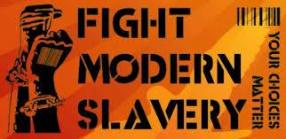
We should all be aware of this case
In the headlines earlier this week was the awful case of two brothers who have, thankfully, been jailed for six years each under the Modern Slavery Act.
You may recall that I have blogged about this relatively new piece of legislation before (http://www.carolinerochfordconsulting.co.uk/blog/32-modern-slavery-act) but this newest case, successfully brought under the Act which was introduced with the aim of reducing such abusive practices, highlights how commonplace slavery is in modern Britain.
The two polish brothers - Erwin and Krystian Markowski, from Nottingham – recruited vulnerable men in Poland luring them to come to Britain with the promise of work. When the 18 men came over to the UK, their actual experience was very different. The brothers deliberately targeted vulnerable people for their cause to make it easier to control them. The work they did was at the warehouse of well-known employer Sports Direct although they were supplied via an agency. The two brothers controlled their bank accounts and kept most of their earnings; in total, they kept £35,000 over a period of 2015-2016. The trafficked men were utterly controlled by the pair and lived in dreadful conditions; more than one of them said that his life had been ruined.
Their sordid business only came to light after one of the workers complained to the agency – Transline – who then reported the situation to police in February 2016.
When the pair were sentenced the judge agreed that whilst it wasn’t forced labour, in reality the workers didn’t have any choice but to work.
In terms of defining what modern slavery includes the Global Slavery Index states that it would cover slavery, slavery-like practices (such as debt bondage, forced marriage, and sale or exploitation of children), human trafficking and forced labour. It goes on to state that forced labour is “All work or service which is exacted from any person under the menace of any penalty and for which the said person has not offered himself voluntarily. (ILO Forced Labour Convention, 1930 (No. 29))”. The brothers actions clearly fall in to this category.
This is a lesson for us all. We shouldn’t turn our backs and just assume that everything is just fine; that such horrific acts only happen in places like China, India, or Pakistan*. This is real and happening under our noses in the UK. According to statistics** most of those in forced labour are men who make up 75%; common areas of forced labour are agriculture, factories, food processing, restaurants, and maritime industry.
We do need to be more aware of not only how we work, and how we employ people but more importantly be more aware of how things we buy, use, or eat on a regular basis are procured and made. If we do this and become more aware and demanding, then we can all make a difference.
*These countries are in the Top 10 countries of enslaved people according to the global slavery index 2013
** National Referral Mechanism statistics 2013 and UKHTC: a strategic assessment on the nature and scale of human trafficking in 2012






